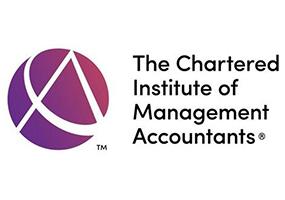
Key information
For:
starting September 2026
Accreditation:
This course is Accredited
Showing content for section Overview
Overview
Explore financial crime investigations and work with business legal teams on this forensic accounting Master’s. Prepare for your career as a forensic accountant, or in internal auditing or compliance, whether you’ve studied accounting in the past or not.
Develop your knowledge and critical analysis skills as you investigate where things have gone wrong in business.
You’ll study financial crime, law and fraud as you focus on business crime prevention and prepare for case discussions with lawyers. You'll apply your learning in topical case studies and develop your understanding of what to look for in financial accounts in industry.
To start, you'll explore topics including data modelling, accountancy basics and valuations. You’ll then discover forensic investigation and fraud examination, as well as corporate governance and ethics, and learn to be an expert witness in our replica courtroom.
By learning from experienced lecturers and industry guest speakers you’ll gain a better understanding of the industry as a whole, and have opportunities to network with guests and fellow accountancy students from across the department.
You'll graduate ready for your forensic accounting or compliance career. To get the most out of this course you should be analytical and curious, and keen to specialise in forensic accounting.
Eligibility
This course accepts UK, EU, and international students.
Course highlights
- Discover forensic accounting, law and policy
- Use real-world case studies
- Apply your learning in practical assessments in our replica court room
- Learn how to prevent financial crime
- Prepare to support businesses in industry
- Network with and learn from industry guest speakers
- Use materials from the Association of Certified Fraud Examiners
- Benefit from our partnerships with various accounting and audit partners and our work with the Financial Reporting Council
Accreditation
This course is accredited by the Chartered Institute of Management Accountants (CIMA). This means that you won't have to take some of the CIMA exams if you want to be CIMA certified after you graduate. You'll have completed part of your professional qualification by doing this degree. Find out more about these exceptions on the CIMA website.
We're a member of the Anti-Fraud Education Partnership with the Association of Certified Fraud Examiners.
The University of Portsmouth has earned business accreditation from the AACSB in recognition of the outstanding quality of its business and management education. Less than six percent of the world's schools offering business degree programs hold AACSB business accreditation.
Contact information
Contact AdmissionsEntry requirements
Eligibility
This course accepts UK, EU, and international students.
September 2026 / January 2027 start
- A second-class honours degree in a relevant subject or equivalent qualification and/or equivalent professional experience.
Please get in touch if you're not sure if your undergraduate subject is relevant to this degree.
Equivalent professional experience and/or qualifications will also be considered, such as previous study, employment, voluntary work and training courses, including courses and qualifications you didn't complete. Learn more about our Recognition of Prior Learning (RPL).
If you're applying as an international student with a non-UK degree, view the equivalent entry requirements we accept for your country.
To find out if your non-UK degree or other qualification is accepted, please visit our page for your country and view the UK equivalent of your qualification.
- English language proficiency at a minimum of IELTS band 6.5 (or equivalent) with no component score below 6.0.
You do not need an IELTS or equivalent certification if:
- you have a UK degree
- you have a degree from a majority English speaking country (not taught by Distance Learning)
- you are a national of a majority English speaking country
Degrees taught solely in English from non-majority English speaking countries will be considered on a case by case basis. Find out more about our English language requirements.
If you do not meet the English language requirements yet, you can achieve the level you need by successfully completing a pre-sessional English programme before you start your course.
Course costs and funding
Tuition fees (September 2026 / January 2027 start)
On campus
- Full-time: £11,200 (may be subject to annual increase)
- Part-time: £3,730 per year (may be subject to annual increase)
Distance learning
- Full time (1 year): £11,200 (may be subject to annual increase)
- Part time (2 years): £5,600 per year (may be subject to annual increase)
On campus
- Full-time: £18,600 (may be subject to annual increase)
- Part-time: £6,200 per year (may be subject to annual increase)
Distance learning
- Full time (1 year): £11,200 (may be subject to annual increase)
- Part time (2 years): £5,600 per year (may be subject to annual increase)
If you're an EU student you may be eligible to receive our EU Scholarship.
University of Portsmouth graduates may receive a 20% alumni tuition fee discount.
Fees are subject to annual increase. Read our tuition fees terms and conditions.
You'll be able to pay your fees in instalments. Find out how to pay your tuition fees.
Funding your studies
Explore how to fund your studies, including available scholarships and bursaries.
If you're a UK student, you may be eligible for a Government Postgraduate Master's Loan, which you can use to help with course fees and living costs.
Loans, scholarships and bursaries
Browse funding such as the Government Postgraduate Loan, our scholarships for new and returning students, and subject specific loans.

Funding for international students
Learn more about sponsorships, scholarships and loans for students applying from outside of the UK.

Fees and funding for Master's courses
Explore Master's funding options, including loans, scholarships, bursaries and more.

Additional costs
These course-related costs aren't included in the tuition fees so you'll need to budget for them when you plan your spending. Additional costs could include:
- Accommodation: If you choose to study on-campus, accommodation options and costs can be found on our accommodation pages
- Recommended reading: You can borrow key texts from the library and if you choose to purchase these texts they may cost up to £60 each.
- General costs: such photocopying, memory sticks, printing charges, binding and specialist printing. We suggest budgeting £75 per year.
- Final project transport or accommodation: where necessary, which related to your research activities. The amount will depend on the project you choose.
Read more about tuition fees and living costs, including what your tuition fees cover.
Modules
Full-time
Core modules
Part-time
Core modules
Core modules
Core modules
Distance learning — full-time or part-time
Core modules
Changes to course content
We use the best and most current research and professional practice alongside feedback from our students to make sure course content is relevant to your future career or further studies.
Therefore, some course content may change over time to reflect changes in the discipline or industry. If a module doesn't run, we'll let you know as soon as possible and help you choose an alternative module.
Facilities

Bloomberg Suite
Access data from the world's global financial markets and gain experience using industry standard software.

Replica courtroom
Explore how laws and policies operate in practice and build the skills you'll need to present and attend cases in our realistic copy of a Crown Court, complete with witness stand, jury box, public gallery and defendant dock.
Learn more about the courtroom

Business analytics software
Use industry standard business analytics software such as Microsoft BI, Python, and Tableau.
How you'll spend your time
We recognise that you'll probably be juggling more demands when you do your Master's degree, as you may be working or you may have family responsibilities.
We'll give you as much indication here as we can of how much time you'll need to spend in on-campus or in online lectures and seminars and how many hours you can expect to spend in self-directed study, but please note that these indications are always subject to change.
Course structure
You will study the same modules on this course if you study full-time or part-time, and whether you study on campus or through distance learning.
You can study this course:
- Full-time over 1 year, on campus or via distance learning
- Part-time over 2 years by distance learning
- Part-time over 30 months on campus or by distance learning, or by distance learning starting in January
If you choose to study on campus you should plan to attend campus every weekday.
If you choose to study by distance learning, your classes will be pre-recorded and available online so you can study in your own time.
Assessment
You'll be assessed through:
- cross examinations (law court)
- presentations
- assignments
Full details of assessment can be found in the modules in the 'What you'll study' section.
Teaching
Master's study is deeper and more specialised than an undergraduate degree. This means you'll focus on something that really matters to you and your career as you work closely with academics committed to the subject.
You'll spend more time in independent study and research than you did for your undergraduate degree. If you choose campus based study, the majority of your teaching time will be in-person and face-to-face.
Teaching staff
These are some of the expert staff who'll teach you on this course:

Christina Philippou
I qualified as a chartered accountant with PKF (now BDO), where I specialised in auditing across a variety of business sectors. I then spent 8 years working as a forensic accountant for Deloitte in London. I joined the University in 2015.
I'm particularly interested in forensic accounting and fraud in sport and I've done a lot of research on the finances of football. I created a football finance course for the Premier League's Elite Academy Managers programme (EAM) and I'm Director of Policy at 'Fair Game'.

Professor Lisa Jack
I am one of the few accounting researchers to investigate the agri-food industry. I write about the effects of accounting and performance measurement practices on the industry, and on society more widely. In particular, I investigate fraud in the food and drink industry. I have also led a successful project, on the growing costs and other problems associated with retail returns in from online purchases. This work has brought me into contact with major retailers in Europe and is continuing with new projects around costing, lean management and circular economy in omnichannel environments.
Term dates
September start
The Master's academic year runs from September to the following September. There are breaks at Christmas and Easter. Over the summer you'll be writing your project / dissertation.
January start
Courses that start in January have the same amount of teaching as September-start courses, but they normally run over a longer time period.
January-start courses normally run between 14–18 months, beginning in January and ending in the spring / summer of the following year. There are breaks at Christmas, Easter and in the summer. In the last few months you’ll be writing your project / dissertation.
Career development
Careers this Master’s prepares you for
This Master’s degree will help you to specialise in forensic accounting and build on your business or accountancy studies at undergraduate level.
You'll benefit from CIMA exam exemptions after you graduate. This means you'll have fewer exams to sit to become an accredited forensic accountant.
Graduates of this course have gone onto areas such as:
- forensic accounting
- business accounting
- compliance
- internal auditing
Career outcomes shown are sourced from the latest available graduate outcome surveys. The data shows career outcomes at 15 months after graduation.
Career planning
During your course you'll have expert career support from our Careers and Employability Centre, your tutors and our Business and Law Career-Ready Programme. This support will continue for 5 years after you graduate.

You'll benefit from:
- Networking events
- Regular emails from the Career Ready Programme sharing job opportunities, application tips and events
- Applied projects with companies such as IBM, Boeing and Hampshire County Council
- Workshops to enhance your employability skills
- Recruitment events including the Student and Graduate Opportunities Fair
- 1-to-1 appointments
- CV and cover letter advice
- Interview preparation and practice
- Support starting your own business
Meet Antonette
Hear about Antonette's experience as an international student in Portsmouth, from choosing MSc Forensic Accounting to studying by the sea – and find out how Portsmouth helped Antonette boost her career.
[Antonette Kumar - MSc Forensic Accounting, 2017]
Antonette: There were no universities in India that offered me this course, this niche specialisation.
As a kid, I've always wanted to study in the UK. I've heard a lot about quality of education in the country, and I chose Portsmouth because Portsmouth was one of the only four, at that point, that were offering this course and it was one of the top.
Honestly, everything was different. It was a total culture change for me, you know, with the food, with, you know, how you get along with people. The concept of using please, sorry, thank you in every sentence. But I would say it wasn't difficult. The people in Portsmouth are really nice and the whole city felt very welcoming. I used to love taking my books to the seafront and sitting down there just, you know, with my mug of hot chocolate and just sitting there and studying. So overall, I really liked how the course was structured. I think every module that was covered is very much relevant to what I'm doing right now. The concept of having personal tutors I think is very crucial for an international student because for people that are not used to this mode of education, to have someone to sort of literally hold your hand and walk you through it is very crucial.
I think the best part of it was actually the module on expert witnessing where we actually got to go to the Crown Court. We have one part of our coursework that was conducted there where you're cross-examined, which I think was very exciting. My degree got me an internship with Moore Stephens. I moved to India, and I started working with Ernst & Young in their forensic team as a consultant and that experience, along with my degree, took me to KPMG and here I am. I am with KPMG in the UK now.
I just love my job. I love what I'm doing. I investigate on a daily basis. I currently work around anti-bribery, anti-corruption, and I just think overall, the course was just my foundation taking me heights. I'm sure it's going to take me higher.
Supporting you
Master's study is more focused on independent learning than undergraduate study, but you'll get lots of support via video and phone from teaching and support staff to enhance your learning experience and help you succeed. If you choose to study on-campus, you'll also get face-to-face support. You can build your personalised network of support from the following people and services:
Types of support
Your personal tutor helps you make the transition to independent study and gives you academic and personal support throughout your time at university.
As well as regular scheduled meetings with your personal tutor, they're also available at set times during the week if you want to chat with them about anything that can't wait until your next meeting.
In addition to the support you get from your personal tutor, you'll also have access to our student success advisers. They can give you confidential, impartial advice on anything to do with your studies and personal wellbeing, and refer you to specialist support services if you need extra help or support.
The Maths Cafe offers free advice and help with maths skills in a friendly, informal environment. You can come to our daily drop-in sessions, develop your maths skills at a workshop, or use our online resources.
You'll have help from a team of study support tutors. Based within the Faculty of Business and Law, these tutors are familiar with the specific requirements your assignments and work closely with faculty academics. This means they can give you focused support with the specific study skills you need to be successful on your course. They're available face-to-face, by phone, email, and by video call.
They can help with:
- academic writing (for example, essays, reports, dissertations, projects and literature reviews)
- reflective writing skills
- critical thinking skills
- delivering presentations (including observing and filming presentations)
- understanding and using assignment feedback
- managing your time and workload
- revision and exam techniques
If you're a mature student, specialist support to help you return to learning is available.
During term time, Faculty Academic Skills Tutors (AST) are available for bookable 1-to-1 sessions, small group sessions and online sessions. These sessions are tailored to your needs.
Support is available for skills including:
- University study
- Getting into the right study mindset
- Note-taking and note-making skills
- Referencing
- Presentation skills
- Time management, planning, and goal setting
- Critical thinking
- Avoiding plagiarism
If you have a disability or need extra support, our Disability Advice team will give you help, support and advice.
Library staff are available in person or by email, phone, or online chat to help you make the most of the University’s library resources. You can also request one-to-one appointments and get support from a librarian who specialises in your subject area.
The library is open 24 hours a day, every day, in term time.
You can get personal, emotional and mental health support from Student Wellbeing, in person and online. This includes 1–2–1 support as well as courses and workshops that help you better manage stress, anxiety or depression.
If you require extra support because of a disability or additional learning need our specialist team can help you.
They'll help you to
- discuss and agree on reasonable adjustments
- liaise with other University services and facilities, such as the library
- access specialist study skills and strategies tutors, and assistive technology tutors, on a 1-to-1 basis or in groups
- liaise with external services
If English isn't your first language, you can do one of our English language courses to improve your written and spoken English language skills before starting your degree. Once you're here, you can take part in our free In-Sessional English (ISE) programme to improve your English further.

Joining us as an international student
You'll feel at home in our international community and our diverse city. You'll be joining over 5,000 international students from more than 150 countries who are studying with us.
Learn more about international student life and how we can help you with visas, applications, arrival and settling in.
How to apply
Unlike undergraduate applications, which go through UCAS, applications for this Master's course are made directly to us.
There's no deadline for applications to this course. We accept applications right up until the start dates in September and January, as long as there are places available. If you wait until your start month to apply, you may find that the course is full.
If you're applying to study on-campus as an international student, remember that you'll need to leave plenty of time to get your visa organised.
You can find more advice about applying in our Master's application checklist. International students and current students and recent graduates of the University of Portsmouth also have some different application options, which are detailed below.
Extra information for international students
If you're an international student, you can apply directly to us using the same application form as UK students.
You could also get an agent to help with your application. Check your country page for details of agents in your region. To find out what to include in your application, head to the how to apply page of our international students section.
If you don’t meet the English language requirements for this course yet, you can achieve the level you need by successfully completing a pre-sessional English programme before you start your course.
Ready to apply?
Start this course in September 2026
On-campus
Apply now (Full-time) - 1 year
Apply now (Part-time) - 30 months
Distance learning
I'm a current Portsmouth student, or a recent Portsmouth graduate
If you're currently in your final year of study at Portsmouth, or you graduated since July 2024, you're eligible to make a fast track application. You'll have:
- a shorter application form to complete
- access to the 20% Alumni fee discount
- a guaranteed conditional offer, for most Master's courses
After you apply
Once we receive your application, we may ask you for further information. We will then either make you an offer or suggest alternatives if your application is unsuccessful.
You'll usually get a decision within 10 working days, so you shouldn't have to wait too long. Some courses have an interview stage – we'll let you know if you need to prepare for one.
Learn more about how we assess your application.
Admissions terms and conditions
When you accept an offer to study at the University of Portsmouth, you also agree to abide by our Student Contract (which includes the University's relevant policies, rules and regulations). You should read and consider these before you apply.



